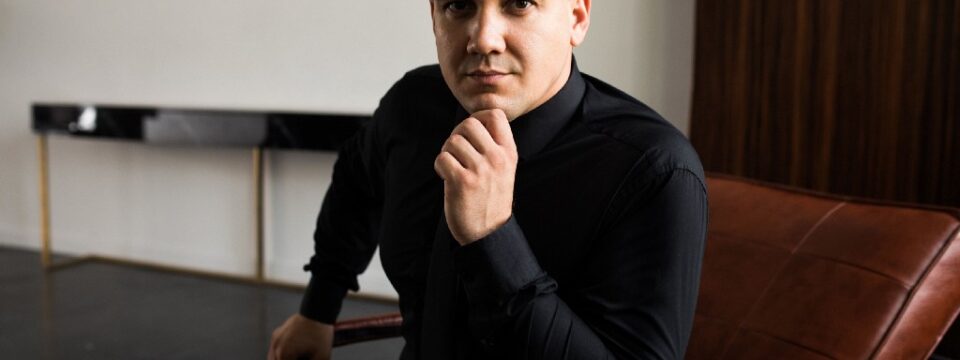Oleh Humeniuk Of WePlay Holding: Life and Leadership Lessons I Learned From My Experience During The Russia-Ukraine War
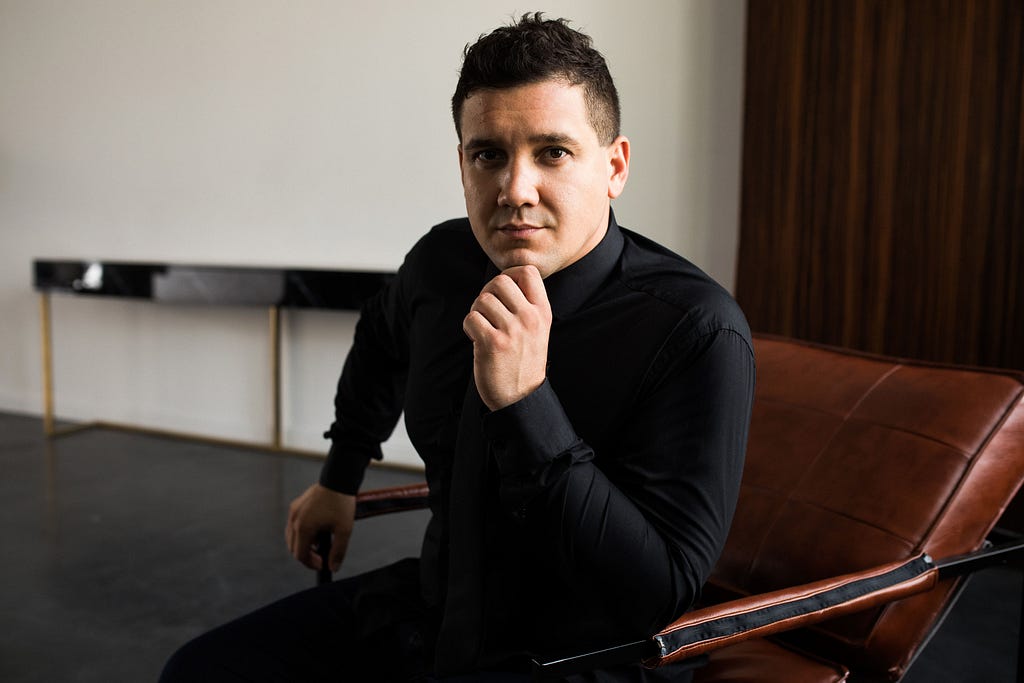
… Do not hesitate to ask for help, help those who need it, but above all, be self-reliant. I believe that people should support each other. The community has a great influence on events of any scale. However, we need to take responsibility for our actions and realize that other people, even close ones, can have similar or different issues. And there’s likely to be a situation when they cannot help you, to provide you with the necessary resources or words.
I had the pleasure of interviewing Oleh Humeniuk. He has been the CEO at the WePlay Holding esports group. since November 2020. From 2019 till November 2020, Oleh Humeniuk has held the position of general manager at WePlay Esports, the flagship company of WePlay Holding. Oleh has over 11 years of experience in IT infrastructure project management for government and business institutions and putting together work teams. Previously, he worked as a senior project manager at Hyuna International. Oleh Humeniuk holds Project Management Professional (PMP) certification from the Project Management Institute (PMI). His motto is “Only forward! Never look back!”
Thank you so much for doing this with us despite the very challenging circumstances. Our readers would love to get to know you a bit. Can you tell us a bit about your childhood “backstory”?
Thank you so much for having me as a guest for your interview!
There’s no unique backstory. I was an average kid, born in western Ukraine. Like every boy, I would go to school, spend hours outdoors with my friends running around, playing football, and had an active life overall. Growing up, I started to develop the skills that in a sense helped me become the man I am today.
The first one of these things — concentration — I learned thanks to my fishing hobby, which came into my life when I was nine. And I got the second important thing, determination, aged 10. Back then, I applied to a linguistic prep school and sat my first exams. It wasn’t easy to pass, but I understood that a fundamental knowledge base would help me fulfill my ambitions in the future. So, there was no way around it — I pulled myself together, prepared for the tests, and successfully passed the exams. From this, I got a rule of thumb that I still follow now: if you want to achieve anything — do your best, or stop complaining.
Can you please give us your favorite “Life Lesson Quote”? Can you share how that was relevant to you in your life?
One of my favorites is Maya Angelou’s quote, “Nothing will work unless you do.” That is so true. You can dream, plan, or discuss your thoughts with people — but unless you get up and do something, there won’t be any outcomes.
Here’s a simple example: if you want money — you need to start working, become proficient, and then you can get a well-paid job or start your own business. You need to act: study, invest your time in self-development, gain the necessary skills and experience, etc. If you just want something but do nothing to make your wish come true, this won’t work. So to see results, you should be ready to pay for them with your time and effort.
Are you working on any exciting new projects now with your business? How do you think that will help people?
The only project every Ukrainian is working on right now is bringing closer the victory of Ukraine in the war. We all support each other, our country and people, our army and government. As russia invaded Ukraine, WePlay Holding had many plans and projects ahead. More to say, one of our projects was already in the implementation phase: WePlay Esports, the flagship company of WePlay Holding, was to organize the official Russian-language broadcast of the largest Dota 2 tournament, GAMERS GALAXY: Dota 2 Invitational Series Dubai 2022. Our production team was in Dubai getting ready for the start of the tournament when russia attacked Ukraine without declaring war. Over the past month, there have been many discussions regarding the russian invasion, so we have worked out an action plan in the event of a war. Together with the HR and PR team, we conducted an information campaign for company employees called “AntiStress,” and so on. Nevertheless, no one until the very last moment could have imagined that the war would still happen, and our backup plan would have to be implemented. But it happened the way it happened. We couldn’t let ourselves and our partners down, so we pulled ourselves together and made a broadcast. However, we made it in Ukrainian instead. As a company that originated in Ukraine, WePlay Esports was unable to stay on the sidelines — we made every effort to draw the attention of the global community to the war on Ukrainian territory.
Later, we joined and launched numerous patriotic projects, each focused on supporting Ukraine and its people. For example, tournament platform WePlay Compete (one of our company’s products) launched a series of online esports tournaments to support the Ukrainian army. More than 7,000 participants have already taken part in competitions held daily since March 2.
Furthermore, WePlay Esports joined a charity campaign to help Ukrainians — the #StreamersWithUkraine Marathon. This campaign, launched by Organization.gg, unites influencers, streamers, and companies, no matter the size of the audience, in their desire to help Ukraine and raise $1 million for humanitarian needs in our country.
And with our WePlay Esports Arena L.A., we joined the #StandwithUkraine global initiative launched by the Techiia Foundation NGO. Well-known personalities from different fields record video statements to Ukrainians from our arena, some of them — in the live link-up format. Many great figures have already contributed to this initiative, such as Maye Musk, Canadian-South African model and dietitian, Ronald Emmerich, Hollywood film director, the Ambassador, and Consul General of Belgium in Los Angeles (U.S.) Gunther Sleeuwagen, and others.
We all changed our priorities and directions. And everything that’s happening now, with this dreadful war, is something which must not happen. Though, we try to help the situation as much as we can — by helping others.
Ok, thank you for that. Let’s now move to the main part of our interview. I’m sure it might be challenging, but do you feel comfortable telling us a bit about your experience during the Russian invasion of Ukraine?
I as a person, and as the CEO of WePlay Holding, have had one of the most unwanted experiences which can be experienced at all. The first day, February 24, felt like hell. You are not sure what to do, where to go, what to take. The only thing I was focused on was ensuring the safety of my family and my employees. As I took my family to a safe place, I contacted my team and made sure everyone was aware of the situation and the steps to take. Since then, I have been doing everything I can and more to fulfill my obligations to those I love and those for whom I am responsible by helping and supporting them in all necessary ways.
Can you share the most interesting story that you experienced during the War? What “takeaway” did you learn from that story?
It’s rather an insight than a story, but I do need to share this. I feel enormous pride and admiration for our Ukrainian people. And I mean not only those who are on the frontline bravely defending our land, but also civilians who volunteer, stop tanks with their bare hands, or simply continue working and supporting our economy. Despite the pain that we are all experiencing, we all continue waking up and helping Ukraine take small steps towards victory and a happy future.
As the New York Times says, “I thought I knew what bravery was. And then I saw Ukraine.”
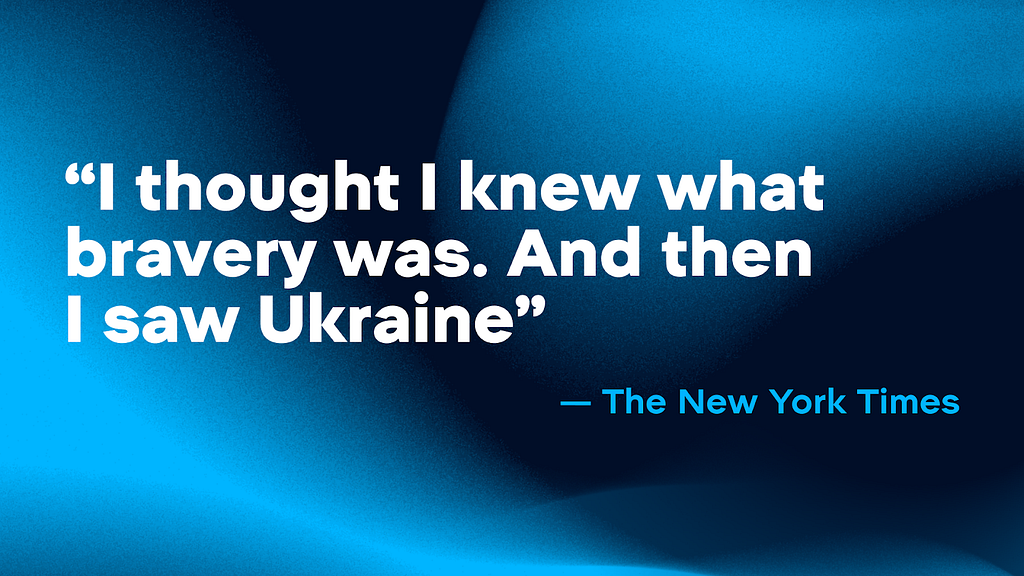
We are interested in fleshing out what a hero is. Did you experience or hear about a story of heroism, during the War? Can you share that story with us? Feel free to be as elaborate as you’d like.
I do believe that every Ukrainian is a hero now. There are so many stories of people showing true valor and willingness to fight for their land and freedom. One of the most famous cases is that of Zmiinyi Island’s defenders, 13 in total, who suggested a huge Russian warship and its crew get out of Ukraine. This story became viral and our government widely supported it: on April 12, postage stamps “Russian warship, go …!” were put into circulation.
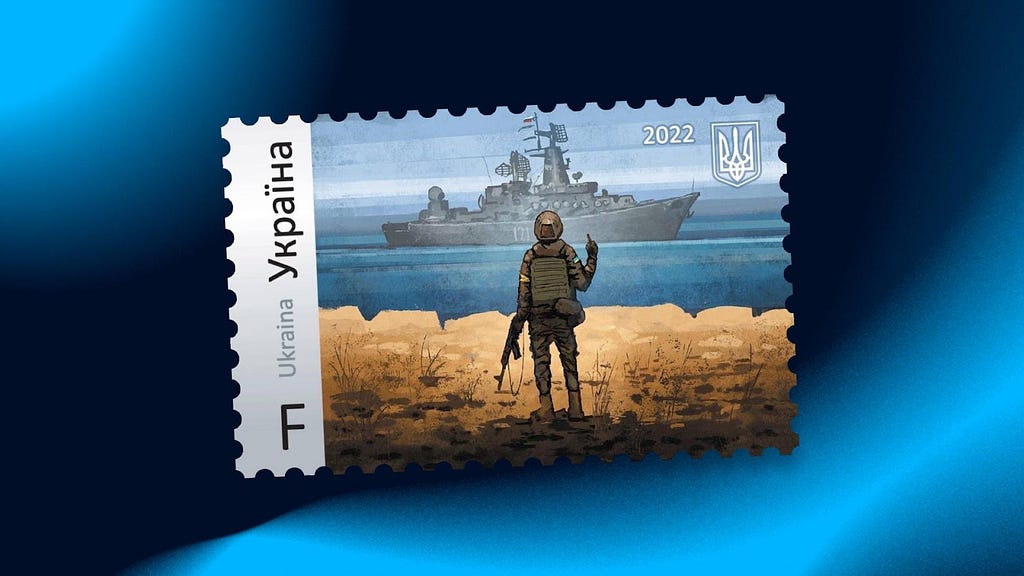
Ukrainians were delighted with such an initiative and bought up more than 500,000 stamps in five days. A charity auction was even held where this stamp was sold for UAH five million (transferred for the needs of the Armed Forces of Ukraine). Another well-known case is that of marine combat engineer, Ukrainian defender Vitaliy Skakun, who sacrificed himself to blow up the Genichesk road bridge, stop the invaders, and save others. There were also instances where the citizens of many Ukrainian towns and cities would take to the streets — weaponless — to protest against the occupation in front of russians shooting their guns.
Thousands of stories, millions of Ukrainian heroes who continue to protect our borders, treat people, teach children, earn money, pay taxes, dispel myths and fakes, and so on. By the way, our company is preparing a social information project intended to combat stereotypes about Ukraine and russian propaganda. You’ll be able to learn more about the project using the hashtag #StopRussianPropaganda.
Based on that story, how would you define what a “hero” is? Can you explain?
I think that being a hero means doing something which you do best, despite the circumstances. For example, if a person has military education and is skilled in the military craft, they should be at the forefront and fight the enemy. If a person has medical education and knows how to cure illness, they should be a doctor and treat people. If a person owns a business and knows how to run it, they should do it, providing jobs, paying wages and taxes, and thereby supporting their country. Despite the war. Despite the pandemic or any other crisis or adverse conditions.
Can you share with our readers 5 Leadership or Life Lessons that you learned from your experience during the Russia-Ukraine war”? (Please share a story or example for each, if you can.)
Unfortunately, war is a tough teacher, but still, I believe we all can develop some skills and personality traits that will help us in life. Here is my list of five lessons I got during the Russian invasion of Ukraine.
1. Always keep a cool head. The ability to make a cool-headed analysis of a situation, anticipate the risks, and, based on this, make the best decision can be an influential factor in a crisis and even save your life.
2. Act fast. If a crisis happens (a war, for example), you don’t have much time before making the first move. Sluggishness may cost you your life, money, people, etc. That is why you must quickly estimate the problem and choose the most appropriate way out of it.
3. Be flexible. After you make a decision, be ready to change or at least adjust it. The circumstances may change quickly, therefore, the optimal solution that you managed to find may lose its relevance. Do not be afraid to reevaluate the situation and change your plans accordingly.
4. Do not hesitate to ask for help, help those who need it, but above all, be self-reliant. I believe that people should support each other. The community has a great influence on events of any scale. However, we need to take responsibility for our actions and realize that other people, even close ones, can have similar or different issues. And there’s likely to be a situation when they cannot help you, to provide you with the necessary resources or words.
5. Try to keep a positive attitude and not to lose hope. As Victor Hugo wrote in Les Misérables, “Even the darkest night will end and the sun will rise.” Focus on the fact that a bad time, even one as dreadful as the war we’re currently experiencing, can’t last forever. I don’t suggest ignoring the reality, but if you manage to find support in yourself in tough times, it will be easier for you to survive it. And more importantly, you’ll acquire resources to support others.
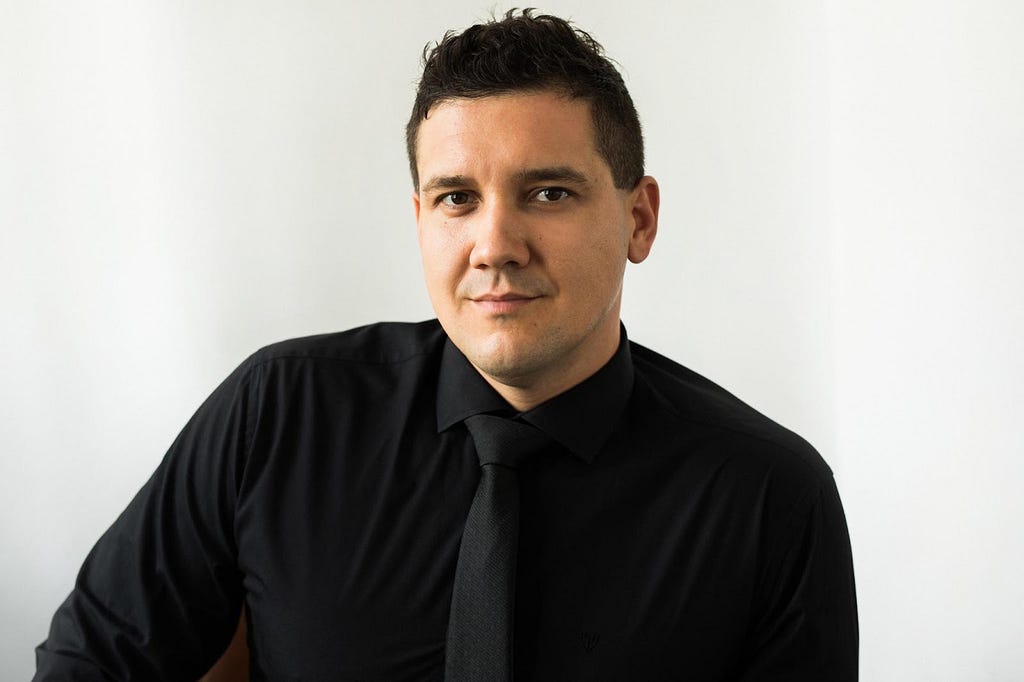
What do you believe are the characteristics or traits needed to survive a crisis?
I think honesty and courage are the two main traits that help to handle any crisis. It is only possible to get an objective assessment of the situation if you are honest with yourself. And one can only take responsibility for overcoming the crisis and be ready for failure and additional problems if one has courage. A combination of the two will help you find a way out of any crisis — both as a human being and a company leader.
When do you think of those traits, and which person comes to mind? Can you explain why you chose that person?
The president of Ukraine, Volodymyr Zelensky. He has proven himself to be a wise leader of the state, revealing that he is ready to fight side by side with the people and prepared for all the consequences that come out of this decision. Courage and honesty were revealed in the best way in this man. We are all very proud of him.
What advice would you give to other leaders about the best way to manage a large team?
The success of managing many people is down to having some right people around you. When the vision of the CEO is shared by the heads of departments, then the right message is delivered to all employees. Therefore, all teammates are united around one idea, everyone has an understanding of the route the company is taking. In fact, such a team does not need to be managed, it just needs to be directed and supported.
None of us are able to achieve success without some help along the way. Is there a particular person you are grateful for who helped get you to where you are? Can you share a story about that?
My wife is the greatest source of support I’ve ever received. She has always been there for me, going along with my ups and downs, supporting and believing in me. Due to her faith, I continue moving mountains and will surely achieve everything that I aspire to, both in my professional and personal life.
You are a person of great influence. If you could inspire a movement that would bring the most amount of good to the most amount of people, what would that be? You never know what your idea can trigger.
I think that to most people today, it’s pretty obvious that esports is not just an entertainment format like any other. They realize it’s a fast-growing industry and a successful business niche. But I do believe that apart from this fact, esports and video games are something that’s capable of changing the way we educate and raise our children.
So, to answer your question, I would be thrilled to launch a project that would introduce video games into the learning process in schools and universities. I do not mean playing CS:GO during the breaks so that the children can relax before the next lesson. What I want is to develop special games through which children could learn history, politics, medicine and so on. I think the metaverse would also be an important element of this initiative.
What can our readers do to help the refugees caused by the Russian invasion of Ukraine?
The Ukrainians who decided to evacuate are under a great deal of stress. They were forced to leave their homes, some of which may now be destroyed, their nearest and dearest, their whole life. They may suffer from the refugee syndrome, feeling guilty that they are now safe, unlike other Ukrainians who did not have the opportunity to leave. Furthermore, they may lack sustenance, emotional stability, or an understanding of how to go on with their lives, where to go, and what to do.
At such turbulent times, any help would be valuable. I believe that creating favorable conditions for employment along with simplified hiring procedures will be very helpful for many Ukrainian citizens who are now staying abroad. This is a very pressing issue for Ukrainians because when they temporarily move to another country, the first thing that interests them is the right to work. And I’m aware that many choose only the countries where they are allowed to work. I also want to note that the residents of many countries respect this approach and call Ukrainians their “guests.” In fact, they are treated the same. And Ukrainians routinely look for opportunities to show gratitude — for example, such events are regularly held in Poland: Ukrainians gather to clean parks and squares, thus saying “thank you” to residents.
Moreover, Ukrainians might need assistance with finding accommodation, food, or clothing. Due to the massive assistance provided by many countries, it becomes easier for them to go through the adaptation process. Even the kind words of support that Ukrainians hear from people abroad help them feel better.
Any action is better than no action — this is perhaps the most concise answer to the question about assistance to Ukrainian temporarily displaced persons.
Some of the biggest names in Business, VC funding, Sports, and Entertainment read this column. Is there a person in the world, or in the US with whom you would love to have a private breakfast or lunch, and why? He or she might just see this if we tag them 🙂
I would like to have breakfast with Ben Horowitz. I like the way he does business, his way of thinking, and his books.
Thank you so much for these amazing insights. This was truly uplifting.
Oleh Humeniuk Of WePlay Holding: Life and Leadership Lessons I Learned From My Experience During… was originally published in Authority Magazine on Medium, where people are continuing the conversation by highlighting and responding to this story.
